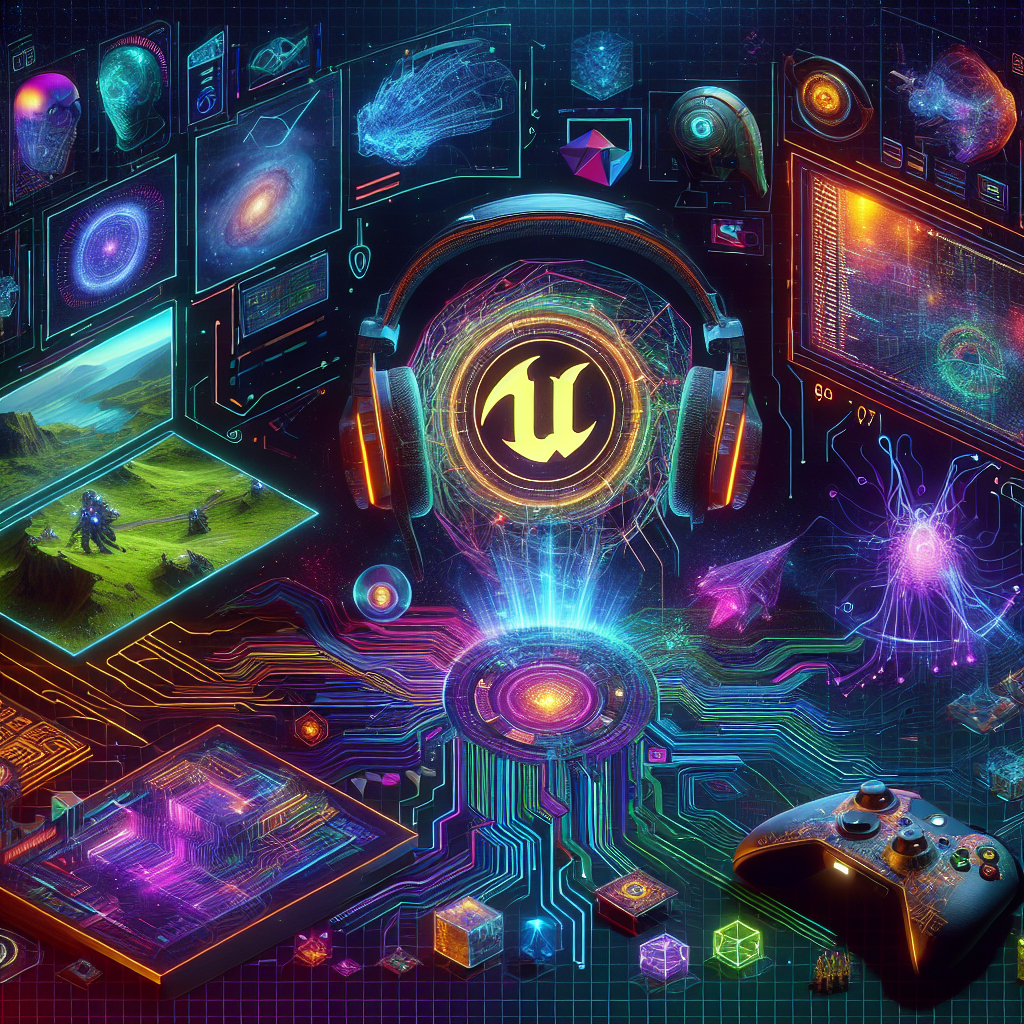The Future of Gaming: How Unreal Engine is Shaping Game Development Trends
As the world of gaming continues to evolve at a rapid pace, developers and players alike are looking to innovative technologies that can elevate the gaming experience. One of the most influential platforms driving this transformation is Unreal Engine. Developed by Epic Games, Unreal Engine has become synonymous with high-quality graphics, dynamic gameplay mechanics, and immersive storytelling. As we look toward the future of gaming, it’s clear that Unreal Engine is not just a tool for development; it’s a cornerstone that is shaping the very trends of the gaming industry.
Advanced Visual Fidelity
One of the standout features of Unreal Engine is its commitment to visual fidelity. With advancements in real-time rendering capabilities, such as ray tracing and photorealistic graphics, game developers can create stunning environments that enhance player immersion. The release of Unreal Engine 5 introduced groundbreaking features like Nanite and Lumen, which allow for incredibly detailed textures and dynamic lighting. As developers harness these tools, we can expect to see more games that push the boundaries of realism, leading to lifelike interactions and captivating worlds.
Democratization of Game Development
Another significant trend influenced by Unreal Engine is the democratization of game development. With its user-friendly interface and accessible resources, Unreal Engine lowers the barrier for entry for aspiring developers. Epic Games offers extensive tutorials, documentation, and a robust community for support. This democratization has led to a surge in indie game development, with small studios creating innovative and unique experiences that rival those of major publishers. As more creators gain access to sophisticated tools, the gaming landscape will diversify, resulting in a wider range of narratives and gameplay styles.
Emphasis on Cross-Platform Play
Unreal Engine’s flexibility allows for seamless cross-platform development, making it easier for developers to create games that can be enjoyed on various devices, from consoles to PC to mobile. This trend aligns with the increasing demand for cross-platform play among gamers. The ability to connect with friends, regardless of the device they are using, enhances community engagement and broadens the player base for developers. As this trend continues, we may see more collaborative multi-platform games that bring players together and create a unified gaming experience.
Integration of Virtual and Augmented Reality
The growing interest in virtual reality (VR) and augmented reality (AR) technologies is another area where Unreal Engine shines. The platform provides developers with the tools necessary to create immersive experiences that blur the lines between the virtual and real worlds. With its high-performance capabilities and excellent support for VR/AR hardware, Unreal Engine positions itself at the forefront of this trend. As more developers explore these technologies, we anticipate a rise in innovative applications, from gaming to educational tools, shaping how users interact with digital content.
AI and Machine Learning Integration
Artificial intelligence (AI) and machine learning are becoming increasingly integral to game design, enhancing everything from NPC behavior to procedural content generation. Unreal Engine facilitates the integration of AI tools, allowing developers to create more dynamic and responsive gaming environments. As developers leverage AI capabilities to enhance gameplay and create personalized experiences, we can expect a more engaging and adaptive gaming landscape. This trend will lead to games that not only respond to player actions but also evolve based on individual gameplay styles.
Sustainable Gaming Practices
As awareness of environmental issues rises, the gaming industry is taking steps towards sustainability. Unreal Engine encourages developers to implement energy-efficient practices and prioritize eco-friendly designs. The ability to create highly detailed environments within fewer resources allows for reduced energy consumption and lower carbon footprints during development. As this trend gains traction, we could see a shift in how games are built, promoting sustainability as a core principle rather than an afterthought.
Conclusion
The future of gaming is undeniably exciting, with Unreal Engine at the helm of emerging trends that promise to redefine how we experience interactive entertainment. With its advanced visual capabilities, support for democratization, and integration of new technologies like VR, AR, and AI, Unreal Engine is not just shaping game development but also influencing the broader culture of gaming. As developers continue to push the envelope of what’s possible, players can look forward to a future filled with rich, immersive experiences that challenge our perceptions of reality and storytelling. The gaming landscape is evolving, and Unreal Engine is leading the charge into uncharted territory.




